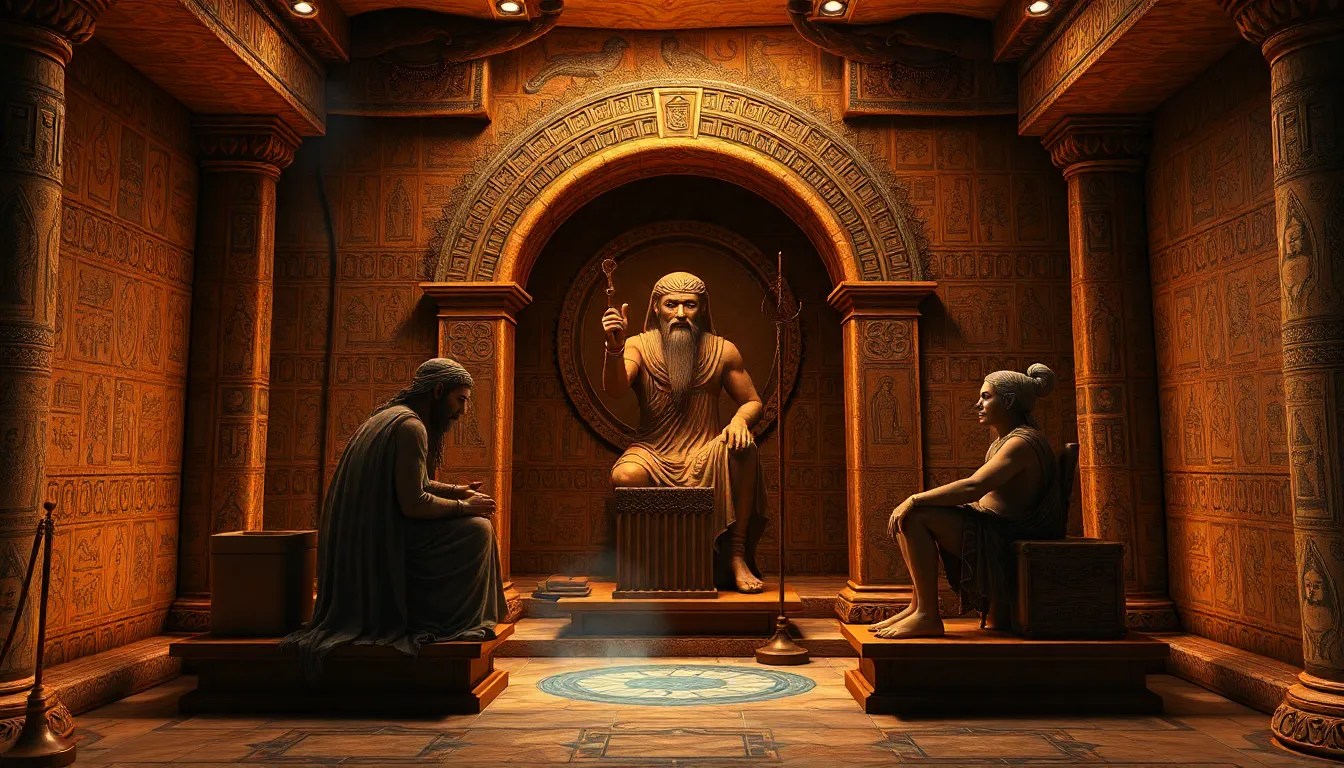The Oracular Process: From Consultation to Interpretation
I. Introduction to Babylonian and Mesopotamian Oracles
In ancient cultures, oracles served as a vital link between the divine and human realms. They provided insights and guidance through various divinatory practices, allowing individuals and communities to seek knowledge about the future and the will of the gods. In Babylonian society, oracular practices were particularly significant, influencing decisions from personal matters to state affairs.
This article explores the intricate process of consultation and interpretation of oracles in Babylonian and Mesopotamian mythology, providing a comprehensive overview of their historical context, methods, and societal impact.
II. Historical Context of Oracular Practices
Oracular traditions in Mesopotamia have deep roots, with their origins tracing back to the early Sumerians. These practices evolved over millennia, adapting to the cultural and religious shifts within the region.
- Origins: The earliest records of divination appear in Sumerian cuneiform texts, indicating a long-standing belief in the power of omens.
- Key Civilizations: Various civilizations, including the Akkadians, Babylonians, and Assyrians, each developed unique approaches to oracles, often influenced by their respective deities and societal needs.
- Notable Figures: Figures such as the priest-diviner and the king often played crucial roles in interpreting divine messages, with texts like the ‘Enuma Elish’ providing context for their practices.
III. The Consultation Process
The consultation process was a multi-faceted ritual that required careful preparation and consideration. Individuals would approach oracles for various inquiries, ranging from personal dilemmas to significant political decisions.
- Types of Inquiries: Common inquiries included:
- Personal issues, such as marriage and health
- Political decisions, including warfare and governance
- Religious concerns related to rituals and sacrifices
- Rituals and Preparations: Prior to consultation, rituals often included offerings, purifications, and prayers to ensure divine favor.
- Roles of Priests and Diviners: Priests acted as intermediaries, conducting rituals and interpreting messages from the gods.
IV. Methods of Divination
Babylonian oracular practices employed a variety of divination techniques, each with its own procedures and significance.
- Hepatoscopy: This method involved examining the liver of a sacrificed animal, believed to reveal divine intentions.
- Astrology: Astrologers studied celestial phenomena, interpreting the movements of planets and stars as omens affecting earthly events.
- Dream Interpretation: Dreams were seen as messages from the gods, with specific symbols and scenarios analyzed for their potential meanings.
Each method played a crucial role in the divinatory process, with practitioners interpreting omens to guide decisions and actions.
V. The Role of the Divine in Oracular Interpretation
The connection between gods and oracles was foundational in Babylonian belief systems. Oracles were viewed as channels through which divine will was communicated to mortals.
- Key Deities: Major deities associated with divination included:
- Marduk: The chief god, often invoked for guidance in state matters.
- Nabu: The god of wisdom and writing, closely linked to the interpretation of omens.
- Spiritual Significance: Messages received from oracles were considered sacred, and the interpretation of these messages was critical for aligning human actions with divine will.
VI. Interpretation of Oracular Messages
Interpreting oracular messages required skill and understanding of context. Diviners employed various techniques to decode the signs received.
- Interpretation Techniques: Techniques included:
- Symbolic analysis of omens
- Comparative analysis with historical precedents
- Importance of Context: The context of the inquiry, social situation, and prevailing circumstances were essential in understanding the oracle’s response.
- Case Studies: Famous interpretations, such as those involving kings seeking guidance before battles, often showcased the profound impact of oracular insights.
VII. Impact of Oracular Insights on Society
Oracular consultations significantly influenced decision-making processes across various facets of Babylonian life.
- Political Decisions: Kings and leaders often consulted oracles before embarking on wars or making policies, believing divine guidance would ensure success.
- Personal Life Decisions: Individuals sought oracular advice on matters like marriage, health, and community welfare, reflecting the oracle’s role in daily life.
- Long-term Cultural Effects: The tradition of oracles shaped Babylonian culture, embedding a belief in divine influence that persisted over generations.
VIII. Conclusion: The Legacy of Oracular Practices
The oracular practices of Babylonian and Mesopotamian societies offer profound insights into their worldview and cultural values. These practices not only connected individuals with the divine but also played a crucial role in the social and political fabric of the time.
In summary, we have explored the historical context of oracles, the consultation and interpretation processes, and their lasting impact on society. The legacy of these practices continues to intrigue scholars and enthusiasts of ancient cultures, inviting further exploration into the rich tapestry of Babylonian and Mesopotamian mythology.



